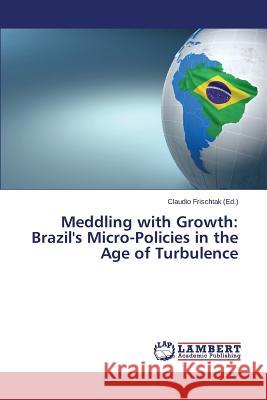Meddling with Growth: Brazil's Micro-Policies in the Age of Turbulence » książka
Meddling with Growth: Brazil's Micro-Policies in the Age of Turbulence
ISBN-13: 9783659462443 / Angielski / Miękka / 2015 / 104 str.
Less than a decade ago, Brazil was described as an economic superpower. Since then optimism faded as the Brazilian economy slid into a pattern of low growth and high inflation. What has gone wrong beyond the well documented problems in fiscal and monetary management? This book attempts to understand this reversal of fortunes by focusing on microeconomic policies that have an impact on the use and allocation of resources, ranging from credit to fiscal incentives, to innovation and trade policy instruments. This volume offers a detailed critique of these policies, whose inspiration seems to be rooted in this historical and costly Brazilian tradition of deep skepticism of market forces and a blind faith in the virtues of government intervention - long challenged by the results on the ground. While this book is likely to appeal the most to readers with a particularly interest in Brazil's recent economic development, it might also provide some broader lessons for analysts and practitioners, whose interests lie elsewhere in the emerging world.
Less than a decade ago, Brazil was described as an economic superpower. Since then optimism faded as the Brazilian economy slid into a pattern of low growth and high inflation. What has gone wrong beyond the well documented problems in fiscal and monetary management? This book attempts to understand this reversal of fortunes by focusing on microeconomic policies that have an impact on the use and allocation of resources, ranging from credit to fiscal incentives, to innovation and trade policy instruments. This volume offers a detailed critique of these policies, whose inspiration seems to be rooted in this historical and costly Brazilian tradition of deep skepticism of market forces and a blind faith in the virtues of government intervention - long challenged by the results on the ground. While this book is likely to appeal the most to readers with a particularly interest in Brazils recent economic development, it might also provide some broader lessons for analysts and practitioners, whose interests lie elsewhere in the emerging world.











